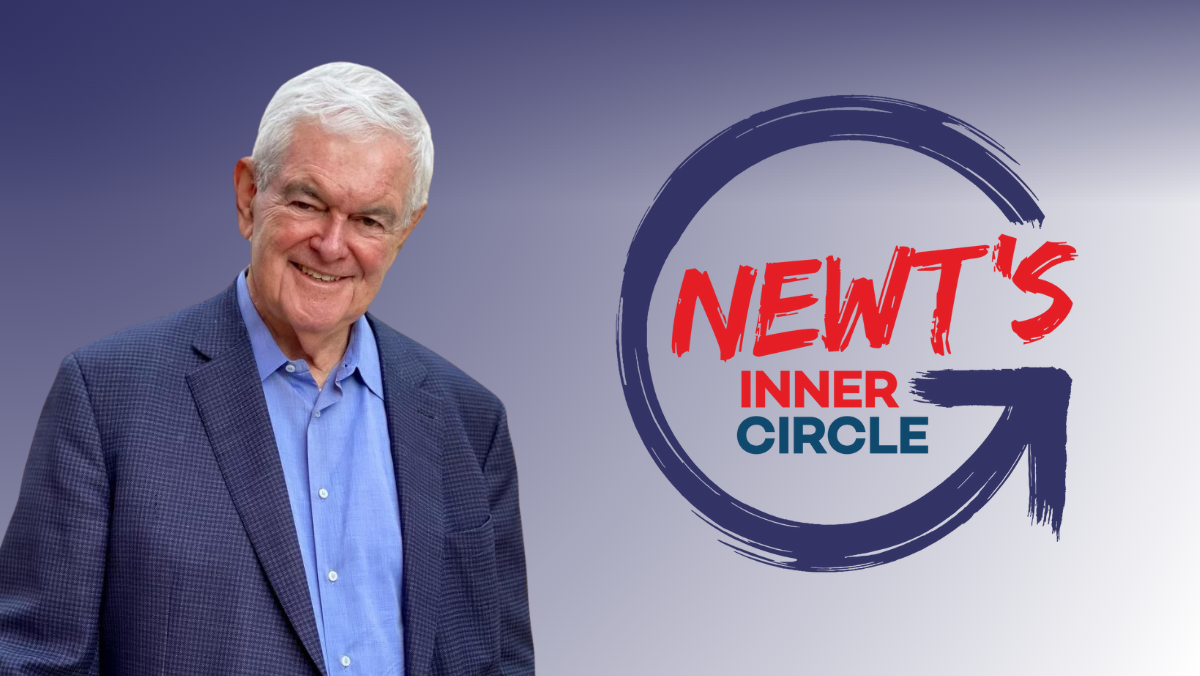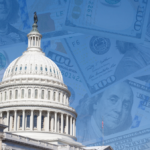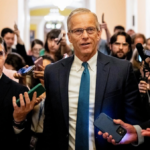Scott Rasmussen has done America an enormous service. He and his team have identified the driving forces behind the destructive radicalism which is pushing us into a cultural civil war.
Scott Rasmussen has done America an enormous service. He and his team have identified the driving forces behind the destructive radicalism which is pushing us into a cultural civil war.
While doing their two weekly national surveys, Rasmussen and his team noticed an anomaly. Out of every 1,000 or so respondents, there would always be three or four who were far more radical than everyone else. After several months of finding these unusual responses, Rasmussen realized they all shared three characteristics.
The radical responses came from people who had graduate degrees (not just graduate studies), family incomes above $150,000 a year, and lived in large cities (more than 10,000 people per zip code).
When Rasmussen aggregated the responses from more than 20 surveys, he realized these people made up a unique elite 1 percent.
He then did a national survey of only people with these characteristics – and found some astonishing results. He briefed me and our team on the findings – and joined me on Newt’s World to talk about it further.
When all other voters gave President Joe Biden a 41 percent job approval, the elite 1 percent rated him at 82 percent approval.
The elite 1 percent are surprisingly young. Sixty-seven percent are between 35 and 54 years old. They are 86 percent white. Almost half of them (47 percent) favor “Sanders-like policies.” They are overwhelmingly Democrats (73 percent).
The gap between the elite 1 percent and the rest of America is startling. While 57 percent of all voters say there is not enough individual freedom in America, 47 percent of the elite 1 percent say there is too much freedom. If you ask the section of the group that is politically obsessed (people who talk politics every day), 69 percent say there is too much individual freedom in America.
Given this, it’s not surprising that the elite 1 percent have great faith in government. Some 70 percent trust government to do the right thing most of the time.
Rasmussen said that this project has revealed the scariest single polling number he has seen in nearly 35 years of studying popular opinion. According to his data, 35 percent of the elite 1 percent (and 69 percent of the politically obsessed elite 1 percent) said they would rather cheat than lose a close election. Among average Americans, 93 percent reject cheating and accept defeat in an honest election. Only 7 percent reported they would cheat.
While only 6 percent of most voters have a very favorable opinion of members of Congress, 69 percent of the elite 1 percent have a very favorable view (this is almost unimaginable). While 10 percent of all voters have a favorable view of journalists, the elite 1 percent really like them (71 percent favorable). While 17 percent of all voters have a favorable view of college professors, the elite 1 percent just love them (76 percent). This tracks, because many of the elite 1 percent may be college professors.
To illustrate the scale of the gap between the elite 1 percent and the rest of the country, consider the elite 1 percent’s views on climate issues (and understand that these ideas are opposed by 63 percent to 83 percent of most Americans).
- 77 percent of the elite 1 percent would like to impose strict restrictions and rationing on the private use of gas, meat, and electricity.
- 72 percent of the elite 1 percent favor banning gas powered vehicles.
- 69 percent of the elite 1 percent favor banning gas stoves.
- 58 percent of the elite 1 percent favor of banning sport utility vehicles.
- 55 percent of the elite 1 percent favor banning non-essential air travel.
- 53 percent of the elite 1 percent favor banning private air conditioning.
As Rasmussen noted, the degree to which the elite 1 percent think their views represent those of the average American is astonishing.
According to Rasmussen, the most radical of the elite 1 percent were educated at what he calls the “dirty dozen:” Harvard, Yale, University of Pennsylvania, Northwestern, John’s Hopkins, Columbia, Stanford, Berkeley, Princeton, Cornell, MIT, and the University of Chicago.
The elite 1 percent who graduated from these schools deeply believe in government. Fifty-five percent believe there is too much individual freedom in America and that Americans should obey government and follow government leadership.
Rasmussen’s identification of the elite 1 percent begins to explain the depth of the tension between most Americans and the tiny group of elitists who control what Vladimir Lenin called “the commanding heights,” the elements of power which control the rest.
It is the elite 1 percent who dominate the universities, news media, judiciary, intelligence agencies, giant foundations, and most major corporations. Although they are relatively few, they marry each other, their children go to the same schools, and they hire and promote each other.
Charles Murray in his classic work, “Coming Apart,” analyzed zip codes and proved that graduates from “dirty dozen” universities that Rasmussen described live, work and play in the same zip codes. They are an isolated set and create a “power aristocracy” that has no knowledge of the rest of us – and contempt for most of us. This perfectly explains Hillary Clinton’s “basket of deplorables” line.
Scott Rasmussen has done pioneering work. Every American should read “The Elite 1% and the Battle for America’s Soul” to understand what we are fighting to change.
Get Newt’s Latest Book:


Newt’s Latest Articles:
- Democrats’ Attacks on ICE, Echoing Desegregation Era and Nullification Crisis, Undermine Rule of Law
- Why Celebrating America’s 250th Anniversary Matters
- ‘Mission Accomplished’? Iran’s Refusal To Accept Defeat Is a Warning for America and the West
- The American People Want a Balanced Budget
- Votes Against the One Big Beautiful Bill Were Votes Against the American People
Newt’s Latest Podcasts:
- Newt’s World – Episode 742: The Conservative Environmentalist

- Newt’s World – Episode 741: The $20 Million Dollar Dinosaur

- Newt’s World – Episode 740: Finding Amelia Earhart’s Plane

- Newt’s World – Episode 739: Dr. Michael Roizen on The Great Age Reboot

- Newt’s World – Episode 738: Scott Rasmussen on The Elite 1%








